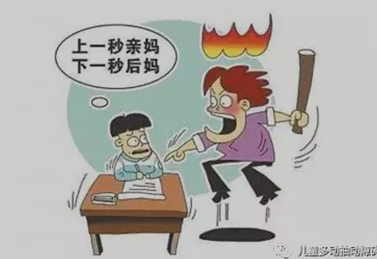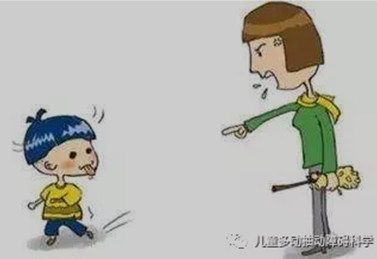









发布时间:2020年09月29日 来源:管理员
 立即收藏
立即收藏
多动症儿童的家庭行为干预:一项日本的研究发现
来源:冲绳科技学院研究生院
冲绳科技学院(OIST)的研究人员已成功将多动症儿童家长训练计划应用于日本家庭。之前在日本,具体的多动症行为干预措施非常有限。
日本心理学研究所发表的“日本新森林育儿计划”概念验证显示,经过干预治疗后,儿童多动症症状减轻,亲子关系改善,这表明对父母进行行为干预训练,可以有效治疗儿童多动症。
国际儿童多动症管理指南主要推荐经批准的药物和行为疗法。与许多西方国家相比,日本的药理学和行为学并不先进,因此选择性较小。由于缺少受过专业训练的专家,进行行为疗法进一步受到限制。
冲绳科技大学的研究人员在家长训练方面走在了日本的前列。研究人员首先征集了日本多动症儿童家长作为干预对象,对他们进行了正规的行为治疗实验,以了解孩子家长是否对该项目内容、评估策略和团队成果感到满意。
尽管研究人员没有具体规定父母性别,但只有孩子的母亲联系研究人员参与研究,共有5位母亲参与此次研究。母亲们很快融入团队环境,并重视与团队其他家长的互动沟通。这些母亲深知养育多动症儿童的艰辛。然而,她们表示,希望获得更多关于多动症病因的信息,同时运用多动症儿童的专门行为干预措施进行附加练习。冲绳科技学院研究人员考虑了这些家长的要求,他们在项目发起人的支持下,改编了新森林育儿计划,以供日本父母使用。
冲绳科技大学人类发展神经生物学部门的静香(Shizuka Shimabukuro)博士表示:“多动症儿童如果做出和正常孩子一样的举动,应该积极给予表扬,这一点很重要,”静香博士致力于让日本家庭适应“新森林育儿计划”,“一般来说,相比于西方父母,日本家长往往不习惯表扬自己的孩子。对许多母亲来说,克服这种文化习惯是一项挑战。”


最初,冲绳科技大学人类发展神经生物学部门的研究人员征集家长人员只是为了进行概念验证研究。后经初步研究反馈,他们修改了计划,将四项常规育儿策略课程改为六项具体为多动症儿童家长设计的课程,并在培训计划开始时又增加了另外五个支持性课程,以增加母亲对多动症的了解,并增强她们参与多动症育儿计划的信心。
随后,研究人员与17位日本母亲共同开展了一项名为“日本新森林育儿计划”的扩展项目概念验证研究,以评估该项目对儿童行为、母亲幸福感和育儿技能的影响。
研究人员对该计划前后报告进行对比,结果显示,执行该计划之后,儿童多动症症状显著减轻,母亲育儿难度降低,家长压力也随之减小。
“因为这项研究的结果是基于母亲的报告,我们不能排除目前获得的积极成果仅仅是因为母亲改变了对孩子行为的看法或态度,”冲绳科技学院人类发展神经生物学部门负责人盖尔特里普(Gail Tripp)教授说,“不过,改善亲子关系对治疗多动症确实非常重要。”
日本“新森林育儿计划”未来研究方向将侧重于对儿童行为和亲子关系进行客观评价。目前正在进行该计划的一项随机对照试验。如果这项计划成功了,那么它可能会成为日本常用的多动症有效治疗方法之一。
【原文资料】
New behavioral therapy to support Japanese mothers of children with ADHD
Date: February 21, 2017
Source: Okinawa Institute of Science and Technology Graduate University – OIST
OIST researchers have successfully adapted a parent-training program for ADHD for use with families in Japan, where ADHD-specific behavioral interventions are limited.
The results of the proof-of-concept of the new program, the "New Forest Parenting Programme-Japan," published in Japanese Psychological Research, show reductions in children's ADHD symptoms and improvements in parent-child relationships, suggesting that the parent-training program might prove to be an effective mainstream behavioral treatment for ADHD in Japan.
International guidelines for the management of ADHD in children recommend approved medications and/or behavioral therapy. Compared with many western countries, Japan has fewer pharmacological and behavioral options. The availability of behavioral therapy is further limited by a shortage of trained specialists.
Researchers at the Okinawa Institute of Science and Technology Graduate University (OIST) first recruited Japanese parents of children with ADHD for a pilot study using standard behavioral strategies to see if Japanese parents would be comfortable with the program content, assessment strategies and group delivery of the program. Though the researchers did not specify the gender of the parents, only mothers contacted the researchers to participate in the study and five mothers were recruited for the study. The mothers embraced the group setting, expressing the importance of interacting with other mothers who could understand the challenges of parenting a child with ADHD. However, they articulated a desire to have more information about the causes of ADHD as well as extra practice using behavioral strategies specifically targeting ADHD. In response, the OIST researchers adapted the New Forest Parenting Programme, with the support of the program originators, for use with Japanese parents.
"It is important that children with ADHD are rewarded with positive praise after engaging in appropriate behaviors," says Dr. Shizuka Shimabukuro from OIST's Human Development Neurobiology Unit, who is the driving force behind adapting the NFPP for Japanese families. "In general, Japanese parents praise their children more sparingly than Western parents. Overcoming this cultural norm can be challenging for many mothers."
Based on the feedback from the pilot study, researchers in OIST's Human Development Neurobiology Unit recruited mothers only for the proof-of-concept study. They modified the programme to replace four general parenting strategy sessions with six sessions that were specifically designed for parents of children with ADHD and also added five extra support sessions to the beginning of the training program to increase mothers' understanding of ADHD and increase their confidence in participating in the parenting program.
The researchers then conducted a proof-of-concept study with the new extended program, known as the NFPP-Japan, with 17 Japanese mothers, to assess the effects of the program on child behavior, mothers' well-being and parenting skills.
Mothers' reports before and after the program indicated significant reductions in children's ADHD symptoms, reductions in mothers' reactivity to their child's behavioral difficulties and reductions in the stress they experienced in their roles as parents.
"Because the results of the study are based on self-reports from the mothers, we cannot rule out that the positive results we saw are due to changes in mothers' perceptions of, or attitudes toward, their child's behavior," says Professor Gail Tripp, head of OIST's Human Development Neurobiology Unit. "Nevertheless, improving the parent-child relationship is an important step in managing ADHD."
Future studies of the NFPP-Japan will focus on using objective evaluations of child behavior and the parent child-relationship. A randomized control trial of the NFPP-Japan is currently underway. If the program proves successful, it might eventually become generally available in Japan as an effective treatment for managing symptoms of ADHD.
点击查看原文
